Journalisitc expertise has helped define the Global Media Forum
An important part of DW’s mission is sharing its 60 years of journalistic and media experience with the world. DW has organized a number of events at the 2014 Global Media Forum in cooperation with organizations and partners which represent the high level of expertise at Germany’s international broadcaster.
Complementing the focus of this year’s conference is a panel organized by the DW Akademie that explores the state of participatory and community-based media in developing countries. The session titled, The power of the neighborhood: How local media organize participation and how DW Akademie supports this, showcases three projects that foster grassroots journalism from partner organizations that span the globe – Welad Elbalad Media Services from Egypt, Open Development Cambodia and Plataforma de Periodismo from Colombia.
With a focus on the watchdog role of journalism is a session titled Whistleblowers, activists, journalists: Is advocacy journalism the journalism of the digital age? The panel includes an editor from Zeit Online and a professor of entrepreneurship and media literacy from the Walter Cronkite School of Journalism and Mass Communication at Arizona State University. The emphasis is on how digital media allows journalists to shed their neutrality and take an active stance on social issues.
Those interested in the EU and public participation should look at a session titled, Turning disinterest into engagement through innovative media formats. Hosted by DW in cooperation with the Institute for Foreign Cultural Relations (ifa), the discussion explores innovations in social media and journalism that are combining to increase citizen engagement in social issues, particularly with the context of EU policy and elections.
At the intersection of social media and human rights is a talk hosted by DW titled, Revolution postponed. The Arab Spring and Africa The discussion brings together African social media experts and journalists to analyze the state of social movements all over Africa, whether it is the Arab Spring in the north to political protests everywhere from Angola to Zimbabwe. The panel will explore if the movements have lost momentum and what the future may look like.
How to create democracy and promote development with digital media
Digital media is changing the world and giving more people everywhere the chance to have their voices heard and participate in social processes. This year’s Global Media Forum will explore the complex diversity of these issues along with experts, policy makers and interested guests from all over the world. With so much to choose from, we wanted to highlight some events and partners that you should look for at this year’s conference.
A session hosted by the German Development Institute titled, Transcultural understandings of legitimacy: A pre-condition for global governance?, will explore the effectiveness of international institutions in achieving legitimacy on the ground in the different countries and cultures where they operate. The focus will be on increasing trans-cultural dialogue in order to create common values and common solutions.
The Friedrich Naumann Foundation for Freedom is hosting a panel discussion that will explore how social media is helping foster democracy around the world. The session titled, The role of (social) media in promoting and sustaining democratic governance, features guest experts from Lebanon, Egypt, India and Myanmar who will discuss how social media initiates and even stabilizes processes of social change.
A plenary discussion hosted by ASHOKA titled, Room for all? How social entrepreneurs in media are forging a new infrastructure for participation, explores the changing structure of global media. The discussion focuses on the role of the media and audience in light of digital media and where the traditional information power structure is changing to allow for the creation of a new public sphere. Challenges will be introduced like finding new audiences and financing, how to bring in new participants and ways to create new “information communities.”
A talk hosted by Voices of Africa Media Foundation will feature a case study from Nairobi, Kenya that provided young people living in the cities slums the chance to become reporters. The talk titled, A case study in enabling residents from informal settlements to participate in decision-making, will showcase some results from the project which provides an example from Africa for how disadvantaged people can make their voices heard.
A workshop hosted by Wartburg College titled, A blueprint for building communities: Applying community-building practices to a news media company,” will explore how the traditional business a model has changed for big news organizations and how they can adopt practices from social media to increase their relevance and attract new audiences.
And that is not all! There is much more to see and learn at the 2014 Global Media Forum. The conference starts Monday June 30 and you can follow the events with live updates on Twitter and Facebook or on the press website.
Using mobile technology in creative ways
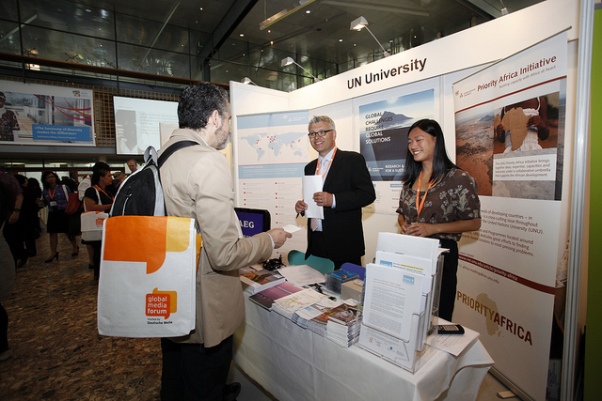 Digital and mobile technology is changing the world but some effects may be less obvious than what you see every day. A selection of talks and presentations from niche companies to big telecoms will cover some innovative trends and techniques at the 2014 Global Media Forum.
Digital and mobile technology is changing the world but some effects may be less obvious than what you see every day. A selection of talks and presentations from niche companies to big telecoms will cover some innovative trends and techniques at the 2014 Global Media Forum.
A presentation hosted by big-data experts, Flowminder, and the United Nations University – Institute for Environment and Human Security (UNU-EHS), focuses on how collecting and analyzing mobile data can be used in determining the extent and real effects of mass displacement following major environmental catastrophes. The presentation titled Big data, big insights: Mapping climate-induced displacement with mobile data, takes a unique look at how mobile data can be used to get accurate assessments of where people go, if they return and if proper aid is being provided to affected areas. The group will present the results of data analysis from five million anonymous cell phone users in the wake of Cyclone Mahasen that struck Bangladesh in May 2013.
Also exploring the effects of mobile technology on society and social development is a discussion hosted by the Vodafone Institute for Society and Communication titled, M-powering society: How mobile technology is changing society. The panel will discuss how mobile technology is being applied to create mobile health, mobile education and mobile government, emphasizing what makes mobile solutions more effective and the positive impact of mobile technology in developing areas of the world.
A talk hosted by the Grimme Institut will cover how digital technology is changing the way people express themselves and share narratives. The session titled See YOU in the future – new ways of digital storytelling, looks at how digital technology has given everyone a voice and has broken down social and cultural barriers. The discussion will explore future tools and platforms and introduce how digital stories are used in different areas of society.
In the final installment next week before the Global Media Forum begins, we will highlight some events covering the main issue at the conference – how digital technology is enabling increased participation in media and governance.
Protecting the fundamental rights of information and expression
The values of liberal democracy are firmly rooted in freedom of expression and information. These vital pillars of society however need to be protected as technology shifts the channels of information and new methods of control are applied. The current state of these fundamental rights in the digital world is on the agenda at the 2014 Global Media Forum.
The international human rights organization, Amnesty International, in cooperation with the German Institute for Human Rights, will cover these issues in a talk titled An ice age for privacy? The rights to free speech, information and privacy versus mass surveillance. The discussion will emphasize how privacy of information is essential to preserving freedom of expression by looking at examples such as Edward Snowden blowing the whistle on the NSA’s digital surveillance and exposing institutional violations of privacy. The talk also explores how to protect the media and whistleblowers and how much privacy must be exchanged in the name of security.
Reporters Without Borders will host a discussion on how digital technology enables journalists to reach sources and gather news more effectively while at the same time endangering their ability to keep that information secure. The talk titled strengthening freedom of information and source protection worldwide, will highlight methods used by journalists to protect their information while analyzing the motivations of so-called “enemies of the Internet”, who use digital technology for censorship rather than the diffusion of information.
Blogs have grown from being an informal method of online expression into a real force in sharing information, especially outside traditional channels which in certain cases are censored and controlled. In a talk hosted by IREX Europe titled The rise of citizen journalism and its impact on traditional journalism in Russia, the state of the blogosphere will be analyzed with a focus on Russian bloggers. Special emphasis will be placed on the Internet as a “digital battlefield” with new laws being used to restrict online freedom of information as online activists fight to be heard.
Next week we will look at selected examples of specific techniques and technologies that are being used in digital media and journalism.
DW recognizes outstanding Indonesian journalists
DW continues to promote quality journalism in every corner of the world. One of the latest initiatives was a competition for journalists in Indonesia conducted in cooperation with Indovision, a local DW partner. Last week two winners were announced representing Indonesian print and television media. Brent Goff, one of DW’s top anchors, presented the awards at a workshop event in Jakarta attended by all of the finalists of the competition.
Yogi Apriandi from Popular Magazine and Hatunggal Siregar from Delik RCTI were the two grand-prize winners of a trip to Bonn for the 2014 Global Media Forum. The entrants were asked to produce a journalistic work emphasizing how Euromaxx, Kick Off! ,Global 3000, Shift or Journal influenced Indonesian audiences. An alternative topic was to describe how the Internet influences public opinion.
The finalist workshop called, “produce once, publish everywhere,” was focused on developing state-of-the-art media and independent journalism in Indonesia.



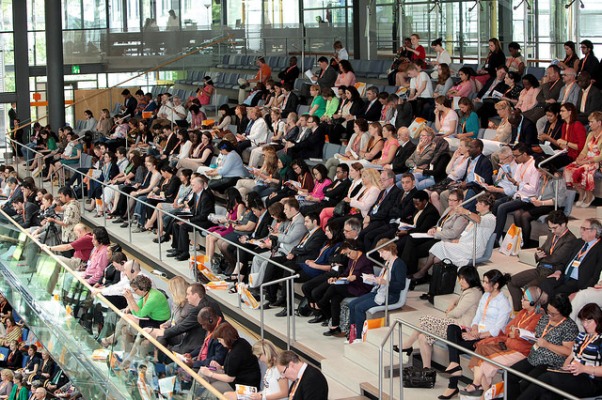

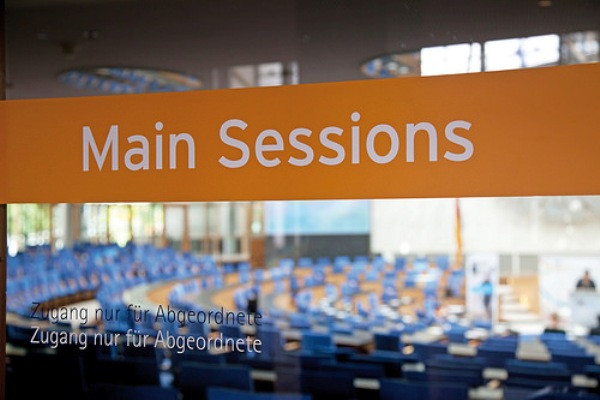
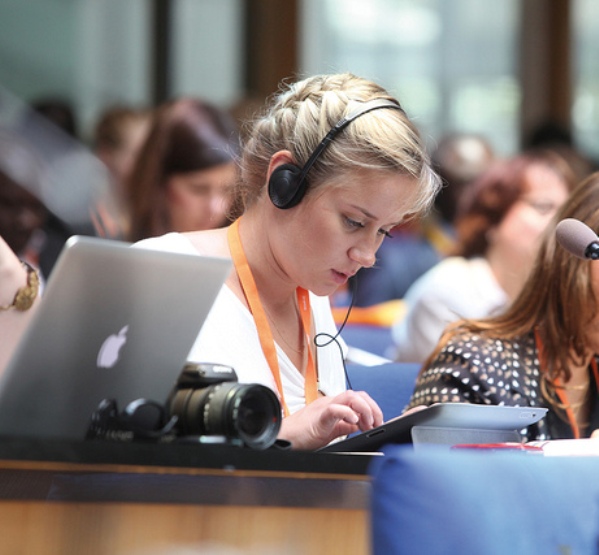
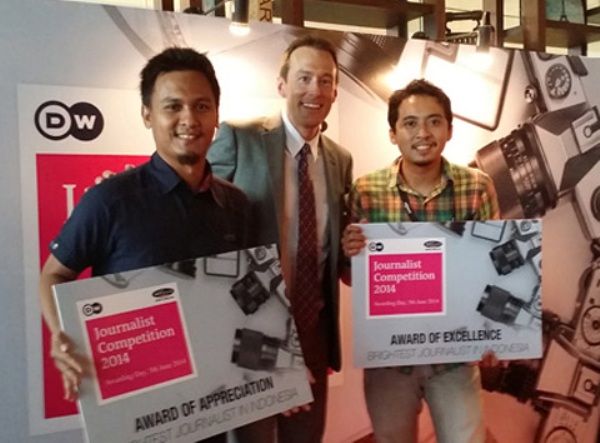




Feedback